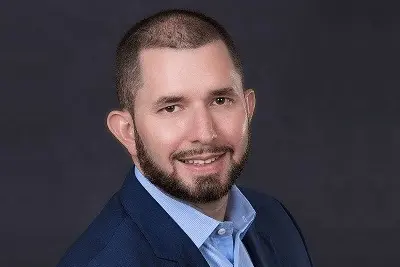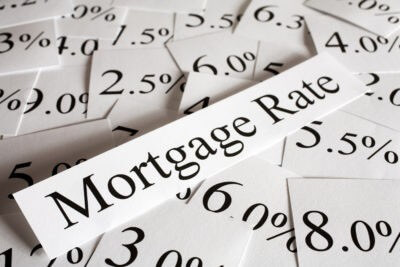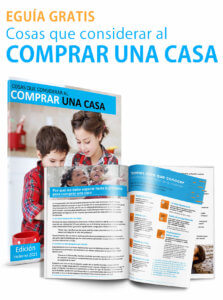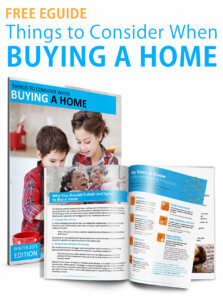Advice From the Nation’s Expert Reverse Mortgage Lender
VA Mortgage
The VA Loan is made for veterans, military members currently serving in the U.S. militaryVA Mortgage
The VA Loan is made for veterans, military members currently serving in the U.S. military, reservists, and surviving spouses (as long as they qualify for the entitlement). It can be used to buy single-family homes, condominiums, multi-unit properties, manufactured homes, and new construction.
Read MoreBank Statement Mortgage Loans
This is the largest and most popular program with the Non-Qualified Mortgage or Non-QM arena.Bank Statement Mortgage Loans
This is the largest and most popular program with the Non-Qualified Mortgage or Non-QM arena. It is primarily, but not limited to, self-employed borrowers who make more money than is shown on their tax returns. What do I mean? Hotel owner buys hotels, fixes them up.
Read MorePrivate, Proprietary, or Jumbo Reverse Mortgages
In 2017, the FHA Reverse Mortgage or HECMPrivate, Proprietary, or Jumbo Reverse Mortgages
In 2017, the FHA Reverse Mortgage or HECM (click here to learn about the HECM) became less attractive to borrowers, and there was worry the “viability” of the HECM was in jeopardy. So the largest reverse mortgage lenders began to create their own versions of the reverse mortgage.
Read MoreForeign National Mortgage Loan
These are big in areas like South Florida.Foreign National Mortgage Loan
These are big in areas like South Florida. If you are living and working outside the US, yet you want to purchase a property in the US, we can make this happen with less than you think. A down payment of at least 25% to 35% depending on the lender, plus a letter from an accountant.
Read MoreConventional & FHA
These are the most common types of mortgages offered and are the main mortgagesConventional & FHA
These are the most common types of mortgages offered and are the main mortgages that fall under the definition of a “Qualified Mortgage”. These are the easiest mortgages to get closed because they offer automated underwriting and are the most mainstream.
Read MoreVA Jumbo Mortgage Loan
The VA Jumbo is simply a VA Mortgage with a loan amountVA Jumbo Mortgage Loan
The VA Jumbo is simply a VA Mortgage with a loan amount over the national lending limit. As of 1/1/2022, the lending limit is $647,200. Since January 1, 2020 there is no down payment restriction on VA Mortgages that are over the lending limit
Read MoreUSDA Mortgage Loans
No, we are not butchers selling you steak, haha. The USDA Mortgage is for rural areasUSDA Mortgage Loans
No, we are not butchers selling you steak, haha. The USDA Mortgage is for rural areas, and offers the Guaranteed Rural Housing (GRH) Loan Program is designed to assist households in obtaining adequate but modest, decent, safe and sanitary dwellings and related facilities for their own use in rural areas.
Read MoreNon-Qualified Mortgages or Non-QM
The Bank Statement Mortgage Loans are the most popularNon-Qualified Mortgages or Non-QM
The Bank Statement Mortgage Loans (click here for more info on this one) are the most popular, but the runner up is the Investor Cash Flow (ICF) or Debt Service Coverage Ratio (DSCR) or No Debt to Income (DTI) Ratio loan. This allows someone to buy an investment property by putting at least 20% down
Read MoreFHA’s Reverse Mortgage Loan HECM
The FHA reverse mortgage is a mortgage loan available to homeownersFHA’s Reverse Mortgage Loan HECM
FHA Reverse Mortgage Loan aka Home Equity Conversion Mortgages (HECM): The FHA reverse mortgage is a mortgage loan available to homeowners, 62 years or older, that allows them to convert part of the equity in their homes into cash.
Read MoreJumbo & High Balance
Whether your county lending limit is $647,200 or $970,800Jumbo & High Balance
Jumbo & High Balance Loans Whether your county lending limit is $647,200 or $970,800, if you go above that limit, you are no longer in the realm of the conventional mortgage. There are High-Balance Mortgage Loans, which are not as large or as strict as Jumbo Mortgage Loans.
Read MoreCommercial Mortgage Loans
These are for businesses or for residential multi family properties of 5 units or more.Commercial Mortgage Loans
These are for businesses or for residential multi family properties of 5 units or more. Apartment buildings with 5 or more apartments, office buildings, doctor’s offices, fast food restaurants, strip malls, hotels, etc.
Read MoreRenovation Mortgage Loan
There are several types, both Conventional and FHA.Renovation Mortgage Loan
There are several types, both Conventional and FHA. Some give limited money, up to $35,000 for repairs on the home, but nothing structural. Others allow for much larger renovations including large structural issues.
Read MoreWhat Is A Reverse Mortgage Loan?
A reverse mortgage (known officially as a Home Equity Conversion Mortgage) is a loan that lets senior homeowners convert some of their home’s equity into cash, either as monthly payments or as a lump sum. But before we get into the specifics of it, let me tell you how this innovative “mortgage” (that doesn’t behave like a normal mortgage!) came into existence in the first place.
The First-Ever Reverse Mortgage
Back in 1961, a great highschool football coach passed away leaving behind a devoted wife and a house with a mortgage payment. In her retirement years, the coach’s widow knew she couldn’t afford the house any longer, so she turned to one of her husband’s former students who worked at a bank in town. The widow figured the banker could help her sell the house or replace the mortgage to get a lower payment. But to her surprise, the smart young man decided to get creative and invent a completely new financial product just for her. The bank offered to no longer require the widow to make her mortgage payment every month. Instead, the bank would make a monthly payment to the widow! Essentially, the bank offered to give back a little bit of the money that the coach and his wife had paid in for years. They would give it to the widow as a monthly payment. She immediately realized that this arrangement would let her stay in her home, so she gladly accepted the bank’s offer…and just like that, the world’s first so-called “reverse mortgage” was born.
Today’s Reverse Mortgage Loans
Fast forward to today, when we have helpful government oversight and specific rules regarding reverse mortgages, rules that are designed to help educate and protect consumers and that all the top reverse mortgages companies follow. We have choices and options available to us now like never before, but these choices and options should be navigated by someone you trust to work in your best interest, not in the best interests of the reverse mortgage loan
This means that senior citizens who are having difficulty making ends meet can utilize the value they’ve built up in their home over the years. This money (home equity) can be used to help support the senior in the form of a lump sum or monthly checks. Available only from authorized reverse mortgage lenders, the Home Equity Conversion Mortgage (HECM) is unlike any other mortgage. Instead of having a payback period like normal loans, reverse mortgages typically don’t need to be repaid until the last surviving homeowner moves out of the property or passes away. Then, the estate usually has from 30 days up to a year to pay off the reverse mortgage loan balance or to sell the home to pay off the balance. After that, any equity left in the property belongs to the estate. And, the estate isn’t even liable if the home sells for less than the balance of the reverse mortgage! What peace of mind!
Who Are the Best Reverse Mortgage Lenders?
You’ve seen the many commercials about reverse mortgages, with celebrity actor endorsements and literally thousands of companies to choose from. So, how do you know when you’ve arrived at a reputable company that won’t take advantage of you and will give you competitive rates?
For starters, you’ll want to make certain the broker has earned their Certified Reverse Mortgage Professionals designation from the industry’s own consumer advocacy group, the National Reverse Mortgage Lenders Association. This certification signifies that they are one of the top reverse mortgage companies, and that they are the most knowledgeable, competent, ethical and professional in the industry, and that they abide by a strict Code of Ethics and Personal Responsibility. Once you’ve found a NRMLA certified lender, you’ll want to have them help you determine the best options for your unique situation. Service you can trust is what truly sets apart the best reverse mortgage lenders! At PS Mortgage Lending, we strive to serve our clients and their families with straightforward, honest advice that leads to great decisions. We’ve been in business since 2012, and we enjoy a great reputation with our clients. We’d love to count you as one of our valued clients as well.
Should I Choose A Reverse Mortgage Lender Near Me?
While it certainly isn’t necessary to choose the best reverse mortgage lender based on how close their business is to you, some folks say, “I prefer to do business with a reverse mortgage lender!” Even though nearly every part of the reverse mortgage transaction can now be done remotely, some consumers prefer the in-person experience when shopping for a loan. No worries! We call Miami and all of South Florida our home, and we are ready to help you in person, over the phone, or virtually! We have flexible office hours, a friendly and knowledgeable staff that has helped thousands of homeowners just life you, and a desire to help senior citizens stay in the home they have come to love. So, contact us! And if you live nearby, you’ll soon be able to say, “I have a reverse mortgage lender around me!”
Do I Qualify for a Reverse Mortgage?
To be eligible for an HECM reverse mortgage loan, you must be at least 62 and own your home. If your home isn’t paid off yet, then you must use some of the funds you receive from the reverse mortgage lender to pay off your existing loan. You also will need to meet certain HUD-established financial eligibility criteria. Before thinking that you probably don’t qualify or that a reverse mortgage isn’t for you, please request reverse mortgage information so that you can make an informed decision that is best for you. These loans are designed to help you. Remember, even the very first reverse mortgage was designed by a banker to enable a widow to stay in her own home! This innovative loan has been helping people stay in their homes ever since. So, set up an appointment with our reverse mortgage broker team and see if this type of solution is right for you. A little bit of reverse mortgage information goes a long way. Don’t miss out on your opportunity to reduce your financial stress through a simple yet brilliant solution that lets you tap into your home’s equity and live comfortably with no more mortgage payments for the rest of your life! Phil Stevenson, one of the nation’s best reverse mortgage lenders, can help make it a reality for you!
When Do I Pay Back My Reverse Mortgage Loan?
A reverse mortgage typically does not become due as long as you keep the terms of the loan. For example, you must live in the home as your primary residence, you must continue to pay your property taxes, and you must continue to pay your homeowners insurance. Additionally, you must agree to maintain the home (basically, it must remain in livable condition!) according to Federal Housing Administration standard requirements. If you you fail to meet these requirements, the reverse mortgage lender (the bank) can initiate a loan default that may end up in foreclosure. But that’s it! You basically must agree to keep the home in the same or better condition as you have it now, for the life of the loan (which is actually your lifetime). It’s just that simple.
Other Helpful Reverse Mortgage Information: Loan Limits
To calculate how much money that you are eligible to pull out of your home’s equity generally depends on four primary factors: the age of the youngest borrower, the current interest rate, the home’s appraised value and the lending limits imposed by the government (though private lenders can lend beyond those limits). To estimate how much you could receive, reach out to our team, and we’ll listen to your story. Then, we’ll give you our best recommendation about what reverse mortgage lender is best for your needs and how much money you could receive, including what way is best to get that money (monthly? lump sum?). We’ll even help you calculate what funds from the loan proceeds you may need to set aside to cover the ongoing costs of taxes and insurance.
Distribution of Money From a Reverse Mortgage
There are several ways to receive the proceeds from a reverse mortgage:
- Lump sum – For fixed-rate reverse mortgages, one option is to have the funds you need paid out all at once, in a lump sum of cash at the time your loan paperwork is complete, at closing.
- Tenure – This disbursement of funds gives you equal monthly payments for the remainder of your life, as long as you, (and/or your surviving spouse) live in the home.
- Term – This option gives you equal monthly payments (like the tenure option) but for a fixed period of time.
- Line of Credit – This gives you the right to withdraw any amount at any time until the line of credit is exhausted.
- Any combination of those listed above.
Difference Between a Reverse Mortgage and a Home Equity Loan
Unlike a Home Equity Line of Credit (HELOC), the HECM does not require the borrower to make monthly mortgage payments, and any existing mortgage or mandatory obligations must be paid off using the proceeds from the reverse mortgage loan. Many seniors use the remaining proceeds to fund medical expenses, make home repairs or just keep the extra cash in case of an emergency. In addition, a HECM reverse mortgage line of credit cannot be reduced by the lender and any unused portion of the line of credit will grow over time. With a reverse mortgage the amount that can be borrowed is determined by an FHA formula that considers the age of the youngest borrower, the current interest rate, and the appraised value of the home.
The Fine Print: Details About Reverse Mortgages
A few other details you should know when considering a reverse mortgage solution for your current financial situation:
- In the event of death or in the event that the home ceases to be the primary residence for more than 12 months, the homeowner’s estate can choose to repay the reverse mortgage or put the home up for sale.
- If the equity in the home is higher than the balance of the loan (in other words, if there is leftover money from the sale of the home after the reverse mortgage is paid off), the remaining equity belongs to the estate.
- If the sale of the home is not enough to pay off the reverse mortgage, the lender (not the borrower or the borrower’s estate) must take a loss and request reimbursement from the FHA. No other assets are affected by a reverse mortgage. For example, investments, second homes, cars, and other valuable possessions cannot be taken from the estate to pay off any remaining balance on the reverse mortgagethat isn’t covered by selling the home.
- As previously mentioned, with traditional loans the homeowner is still required to make monthly payments, but with a reverse mortgagethe loan is typically not due as long as you, the homeowner, live in the home as your primary residence, continue to pay required property taxes, homeowners insurance and maintain the home according to FHA requirements. Failure to meet these requirements can force the lender to initiate a loan default that may result in foreclosure on your home. Thus, it is vital to keep up with the basic FHA requirements.
What Next? Closing Thoughts About Reverse Mortgages
So now you know what a reverse mortgage is, and you’re already pretty certain that this is the right solution for your current financial situation. What do you need to do next? You need to contact a reverse mortgage broker who is knowledgeable and trustworthy. Phil Stevenson is that guy, and he and his team of reverse mortgage brokers at one of the nation’s top reverse mortgage companies PS Mortgage Lending can take care of you. They will listen to your situation, counsel you on your choices, and then handle all the paperwork so that you can quickly get the financial relief that you need. Don’t put it off any longer, hoping things will somehow improve. You owe it to yourself to get the best kind of reverse mortgage information: get a real idea of how your situation can improve by exercising your right to a reverse mortgage today. We look forward to hearing from you!
Mortgage Nerd® Updates on Instagram

Watch the most recent videos about what’s going on the industry – learn from the Mortgage Nerd!…

#1vet2another is about taking care of fellow veterans, and what we live by at PS!

Mortgage Nerd has a degree in economics and not just a 24 hour mortgage class. Click below to see the weekly rate update videos.
Frequently Asked Questions
Mortgage Programs
There are many reasons why using a hybrid lender that can both lend directly or broker would benefit you more than going directly to big retail banks or lenders.
For more information…
please call (888)845-6630 or (305) 791-4874












